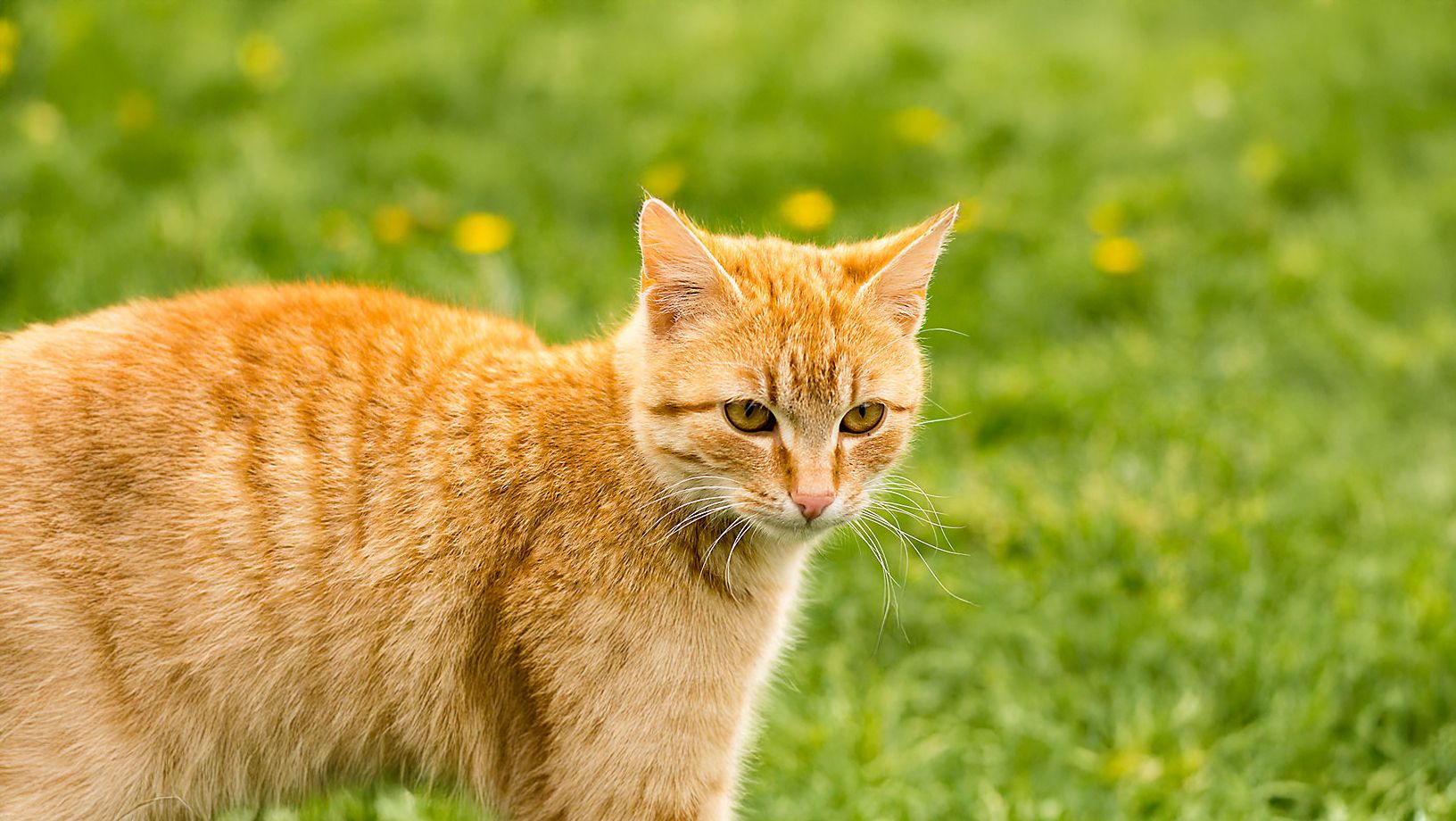Why Is My Cat Eating Grass?

In this Article
If you have a cat, you may have noticed them snacking on grass from time to time. Since cats are carnivores and really only require meat for survival, grass is not typically in their diet. So when your pet suddenly starts chowing down on your yard, it can sometimes be a bit concerning to pet parents. Should you be concerned that your cat is eating grass? More than likely, there’s nothing to be alarmed about. Learn more about why they’re snacking on grass and when you should be worried.
Why Is My Cat Eating Grass?
So, what makes your cat decide to eat grass in the first place? Well, they want to feel better! Most likely, the reason your cat is munching on grass is because there’s something amiss with their insides.
For Digestion: The answer most likely lies in what they did before they ate the grass. If a cat has swallowed something that can’t be digested, their body naturally tries to find a way to make it come back out. Your cat is just acting on the instinct to get rid of something they’ve swallowed that can’t be digested. Cats swallow a lot of stuff that isn’t food, from their own fur while grooming, to the bones and feathers of their unfortunate prey. Since their bodies can’t digest those materials, they have to come back up.
But what does that have to do with grass? Well, first off, cats can’t digest grass. When they have swallowed something else that can’t be digested, they sometimes eat grass intentionally to try to initiate vomiting, which helps their body get rid of anything they may have eaten that would be harmful for them. Put simply, cats sometimes use grass to induce vomiting in order to get rid of other harmful things they’ve ingested.
For Nutrients: Your cat may be trying to combat a dietary deficiency. Grass contains certain nutrients that your cat may be low on, such as folic acid. Folic acid increases oxygen levels in their blood. Because of this, they may seek out grass to get the vitamins and nutrients they need in their body. If you suspect this to be the case, try finding a different cat food that has all the vitamins and nutrients they need. If you do decide to switch foods, make sure to do it gradually, as an abrupt change can cause gastrointestinal problems for your cat.
For Its Digestive Benefits: Grass can act as a natural laxative for cats. If they’re having trouble digesting something that they’ve swallowed, they may turn to the digestive benefits of grass to help them pass it. Some types of grass are helpful for upset stomachs as well.
How Do I Keep My Cat From Eating the Wrong Grass?
Grow your own kitty grass!Kitty grass is grown from seeds, such as wheat, barley, oats or rye. Unlike lawn grass that can have pesticides and chemicals on it, kitty grass is safe for cats if they ingest it. Cats without access to grass may try to snack on houseplants, some of which can poison them. An indoor patch of cat grass lets your cats graze safely whenever they feel the need. Just plant the seeds according to the package directions and kitty-safe greenery will be ready in about 8 days. Cat grass gives them the benefits of safely eating grass without the possibility of eating something that could be harmful to them.
When Should I Be Worried?
No matter what your cat’s specific reason is for snacking on grass, you should always keep an eye on them. Be on the lookout for anything concerning such as frequent vomiting after ingesting lawn grass or eating too much of it. Though grass is typically not harmful to cats, there are some instances in which you should schedule a visit with your vet. Your cat shouldn’t be grazing on grass all that frequently. Talk to your veterinarian if your cat seems to be eating a lot of grass or vomiting often. They can also advise you on the best cat products to help your cats feel their best.
Information in this article is not intended to diagnose, treat or cure your pet and is not a substitute for veterinary care provided by a licensed veterinarian. For any medical or health-related advice concerning the care and treatment of your pet, contact your veterinarian.

